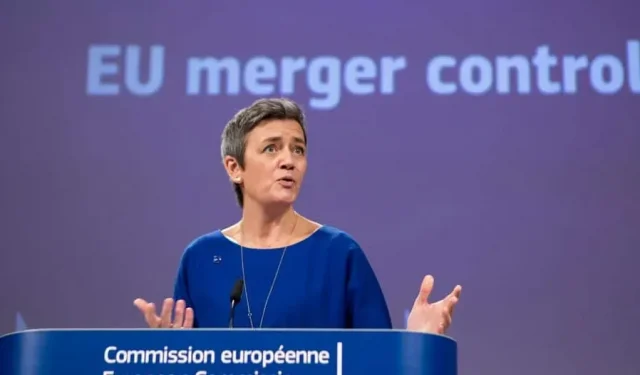Activision Blizzard: European Commission Deepens Investigation into Microsoft Acquisition

Like the Competition and Markets Authority (CMA) of the United Kingdom, the European Commission believes that Microsoft’s acquisition of US publisher Activision Blizzard will not promote competition in the video game industry and the development of the gaming market in the long term. video.
Already on the radar of U.S. and U.K. antitrust authorities, Microsoft will also have to convince the European Commission to approve the Activision Blizzard acquisition, which would normally have to go official before the end of June 2023 . According to a preliminary investigation, the $68.7 billion deal could significantly reduce competition in the console and PC video game distribution market, including video game subscriptions and/or cloud game streaming services, and in the PC operating system market.
#MergerControl Panel ?? Launches In-Depth Investigation into Microsoft’s Alleged Acquisition of Activision Blizzard ?? https://t.co/qttzWXTKPa pic.twitter.com/QWDCag28mM
— EU Competition (@EU_Competition) November 8, 2022
Margrethe Vestager, Executive Vice President for Competition Policy of the European Commission, said:
Video games attract thousands of users worldwide and are one of the fastest growing forms of digital entertainment. Microsoft has been a major player in the gaming marketing chain for years, and today it is acquiring Activision Blizzard, a hugely successful gaming content publisher. We must ensure that this transaction does not crowd out current and future distributors of console and PC video games or competing providers of PC operating systems. The goal is to ensure that the gaming ecosystem maintains its tremendous vitality for the benefit of users in a rapidly changing industry. An in-depth investigation will allow us to evaluate how the deal will affect the game’s marketing chain.
The European Commission pointed to unfair competition
By allowing Microsoft to take over Activision Blizzard, one of the five GAFAM members was free to:
- Blocking access to Activision Blizzard console and PC games, including cult and hugely successful titles such as Call of Duty, the latest installment of which hit an all-time high and generated a billion dollars in ten days, mainly due to sales on PlayStation consoles.
- Having the opportunity, as well as the economic temptation, to pursue predatory strategies against competing distributors of console video games, such as by banning them from distributing Activision Blizzard console video games on consoles or by worsening the conditions for access to or use of these video games.
- Block access to their own PC and console video game subscription video game and/or cloud game streaming services, in particular knowing that they are necessary to provide these nascent services, to the detriment of competing console and PC video game distributors that offer such services
- Reduce competition in the distribution markets for console and PC video games, leading to higher prices, lower quality, and less innovation for console game distributors, who can then pass on to consumers.
- Reduce the ability of other PC operating system vendors to compete with Windows, its operating system, by bundling Activision Blizzard games and distributing it through Windows Game Cloud Streaming to discourage users from buying non-Windows PCs.
- Having the opportunity, as well as the economic temptation, to pursue such a strategy against competing PC operating system manufacturers
The European Commission has given itself until March 23, 2023 to issue a final verdict on the takeover of Activision Blizzard by Microsoft.
Leave a Reply